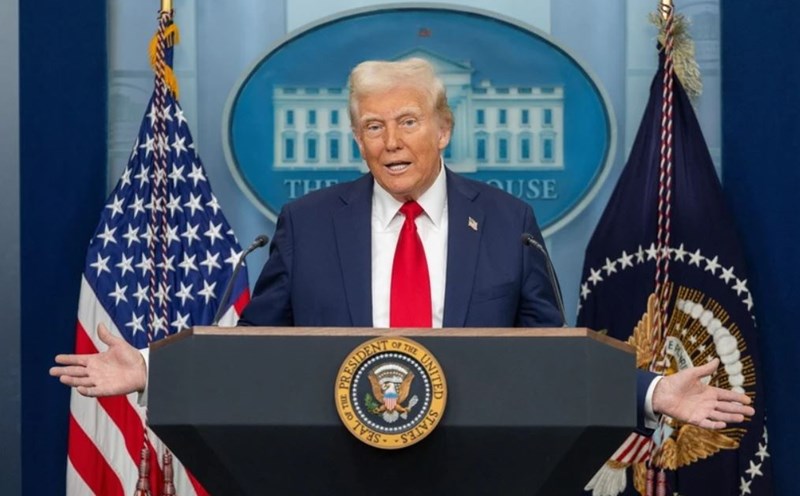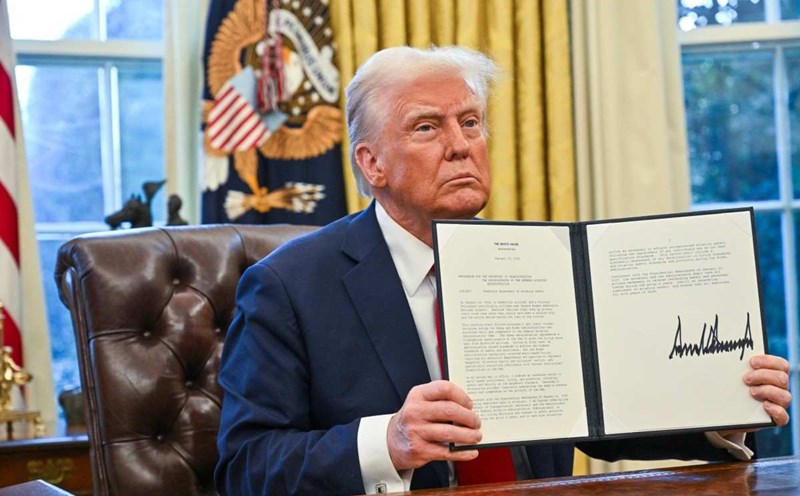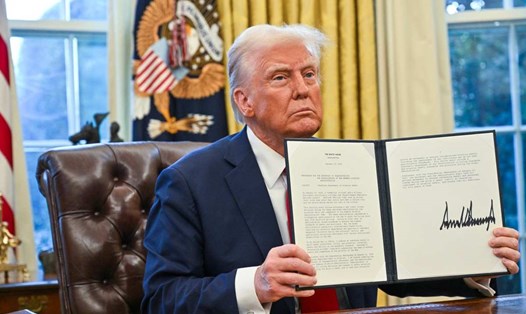Business Insider quoted Jeremy Chan, senior expert in China and Northeast Asia at Eurasia Group, saying: "The end of USAID will certainly benefit China, even if that does not immediately change Beijing's international development strategy."
Expert Tai Wei Lim from Soka University, Japan, also said that the withdrawal of the US from aid programs will open up opportunities for other countries, especially China, to increase the soft influence through financial aid programs and strategic investment.
USAID spent $32.5 billion in fiscal 2024, while estimates show China spending around $7.9 billion in 2022. However, Beijing has been striving to expand its global influence through initiatives such as Ring Road and Road.
Concerns about the increasing geopolitical imbalance as the two largest economies in the world continue to confront. Only this week, the administration of President Donald Trump has imposed an additional tax rate of 10% to all goods imported from China, making Beijing respond by applying taxes on natural gases and machines of LNG and machines. America.
USAID has long been considered a strategic tool to help the US maintain global influence, and support developing countries to deal with humanitarian and medical crises. Half of the USAID budget in 2024 for humanitarian, health and population programs, including HIV Prevention Fund.

Politicians from both parties in the US have spoken out about the essential role of USAID. Senator Andy Kim (New Jersey) emphasized: "Our aid not only helps fight poverty but also a tool to curb China, Russia and Iran's influence." Similarly, Senator Roger Wicker (Mississippi) affirmed that USAID was a means to deal with China's belt and road initiative.
Over the past decade, China has spent more than $1 trillion on global infrastructure projects, from gas pipelines, high-speed railways to seaports.
The China-based Green Finance and Development Center estimates that, currently, about 145-149 countries have participated or expressed their intention to cooperate with the Beltway and Road Initiative.
In 2023, China invested heavily in Indonesia ($ 7.3 billion), Hungary (4.5 billion USD) and Peru (2.9 billion USD). In Africa, China has surpassed the United States to become the largest trading partner since 2009, with a series of new roads, railways and seaports.
Beijing is also shifting from large -scale infrastructure projects to "small but effective" initiatives, focusing on Southeast Asian and African countries. In particular, Chinese President Xi Jinping pledged to financial support more than $ 50 billion for Africa to strengthen relations with developing countries in the context of tensions with the United States and the West.
The sudden closure of USAID can weaken the US image in the international arena, while China benefits without changing too many strategies. "Just do nothing, China still looks more responsible on the international stage" - Jeremy Chan said.
Although it cannot immediately replace USAID's role, China can take advantage of this opportunity to increase its influence, especially in strategic areas such as Africa and Southeast Asia.
Meanwhile, the US government is being sued related to the USAID dissolution. On 6.2, the US Largest Government Officials Federation and the US Foreign Service Workers Association filed a lawsuit against the President Donald Trump's administration to reverse the decision to dissolve the USAID.











